
Life at war. Sasha: people at the station had no idea where they were going. They wanted any train
Sasha is a student at the Yaroslav the Wise National Law University in Kharkiv, a civic activist, volunteer, member of the Ukrainian Students for Freedom, and graduate of the SUSI programme and the Kharkiv School of Human Rights. She is also a Young European Ambassador.
She begins her story by saying that on 23 February she met a friend, and discussed the possibility of a large-scale invasion. The war was in the air.
“On 24 February, I woke up without an alarm at 6 am, although I never wake up myself until 9 am in normal life. On my phone, I found 14 missed calls from my mother, boyfriend and other friends. That’s when I realised something was wrong. Following the instructions, I began to pack my belongings at rapid-fire pace,” says the young woman.
Sasha said that on the first day she was looking for bomb shelters near her house, and then decided to stay in the basement, because she did not want to risk spending the night in the subway because of the coronavirus threat. At first, there were no explosions in the city; the situation worsened later. In the evening, Sasha’s boyfriend returned from his tour (he is a musician), and they spent more than a week together at home. The couple insulated the windows with soundproof panels (because her boyfriend is a musician, they had them available), and prayed that the city would survive. The young people lived on the first floor of a two-floor building downtown, near a number of large buildings, four universities and the Russian consulate. Sasha hoped that the invaders would not attack the neighbourhood around their own consulate.
“Every time when we heard a bomb, we were on the floor between the two main walls in the kitchen. Sirens would often wake us up in the middle of the night or early in the morning. I was very afraid to go out for no reason, and did not let my boyfriend go. Fortunately, we had products that had a long shelf life, such as rice, pasta, and tomato sauce. However, they were not much. Despite all the talks and warnings, we were not prepared for something like this to happen,” said the Younbg European Ambassador.
At the time, Sasha’s parents lived in a high-rise building near the military base. From the first day, they decided to stay in the basement of their garage without electricity or heating. A week later, they could no longer stand this, and decided to move in with their daughter.
“We cooked for the evening and spent the night together. However, new and even more eerie noises than before got us out of our beds in the morning. I think these were missiles. That night, my boyfriend had a nervous breakdown and decided that we had to leave Kharkiv no matter what,” Sasha recalls. They therefore bought tickets for the trip to Ternopil. The taxi to the station was 20 times more expensive than in peacetime. According to Sasha, people at the station had no idea where they were going; they just waited for any train. There were no volunteers or station staff to help. However, Sasha managed to get to the platforms and find their train.
“Four big, brave guys from the territorial defence were holding back the crowd, letting only mothers and children in, separating the families, and leaving the fathers, brothers, and husbands outside. Luckily, we were able to get onto the train together,” she said.
Sasha recalls travelling for 18 instead of 13 hours. The train was full of crying children taking many of the seats. As a result, elderly women could hardly find a place and often ended up on the floor.
“When we were relatively safe, my parents also decided to leave their hometown. They packed everything they needed and went to the hospital early in the morning to pick up my grandfather, who had been in the hospital basement the whole time. I tried to help them plan the journey, taking into account all the difficulties, as you cannot drive a car during the curfew. We managed to reach Ternopil only 3 or 4 days later,” says Sasha.
Everything was quiet in Ternopil, except for occasional sirens. Sasha’s parents and boyfriend are still there, but she had to go further.
“I had to leave my family behind because at the beginning of 2022 I was invited as a youth delegate of Ukraine to the Congress of Local and Regional Authorities of Europe, and I had to be present at its session in Strasbourg,” she explains. It took her five days to get from Ternopil to her destination. Sasha left Ternopil on the morning of 16 March. She took a bus to Lviv, where she stayed for five hours waiting for a train to Przemyśl. Instead of the usual two and a half hours, the train took ten hours. In Przemyśl, volunteers greeted the Ukrainians with warm pies and tea. After that, Sasha took a train to Cracow. She decided to stay there, because she found a free hotel room in the city through www.hospitalitysupport.org. The next day, she moved to Berlin, where she had friends who were ready to host her for some time. Volunteers handed out tickets “to Berlin” on a “special train for Ukrainians”. Instead, the train took people only to the border. Everyone had to cross the border by bus. Rather than Berlin, the bus took them to Leipzig. From there, Sasha took a train to Frankfurt, and the next day she went to Strasbourg.
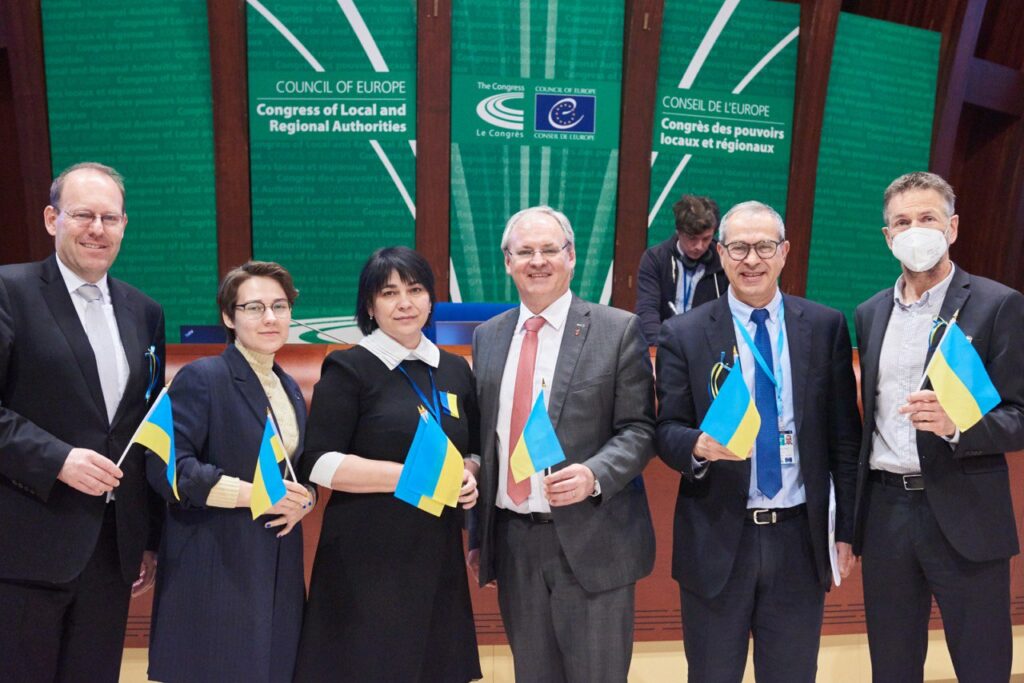
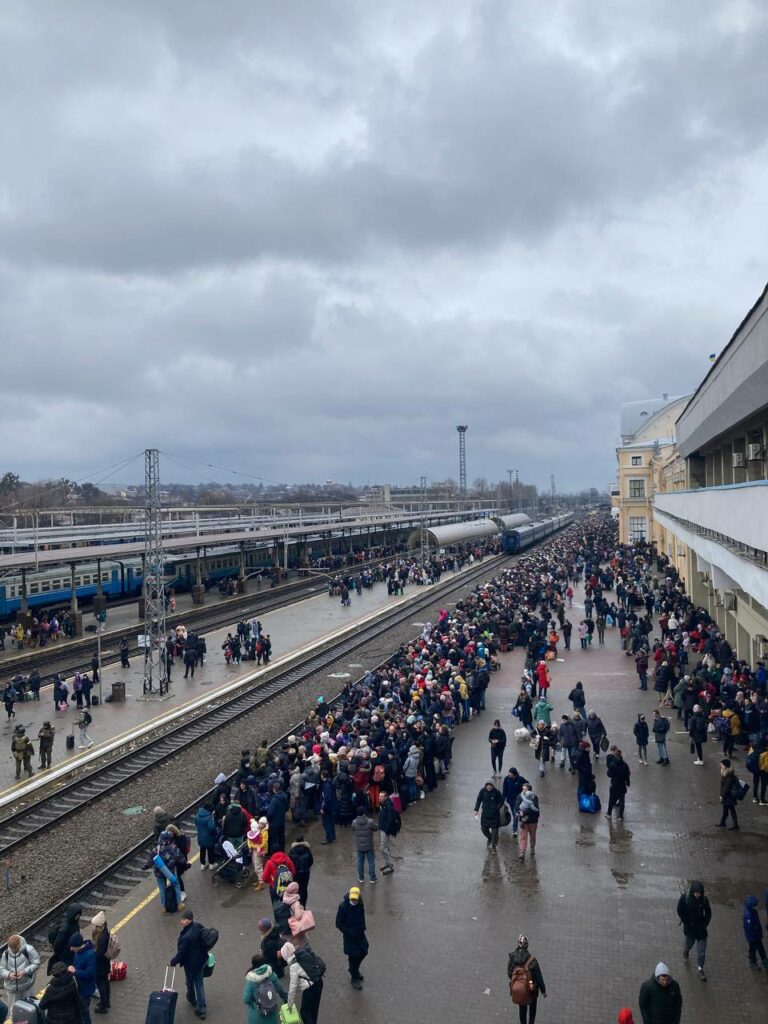
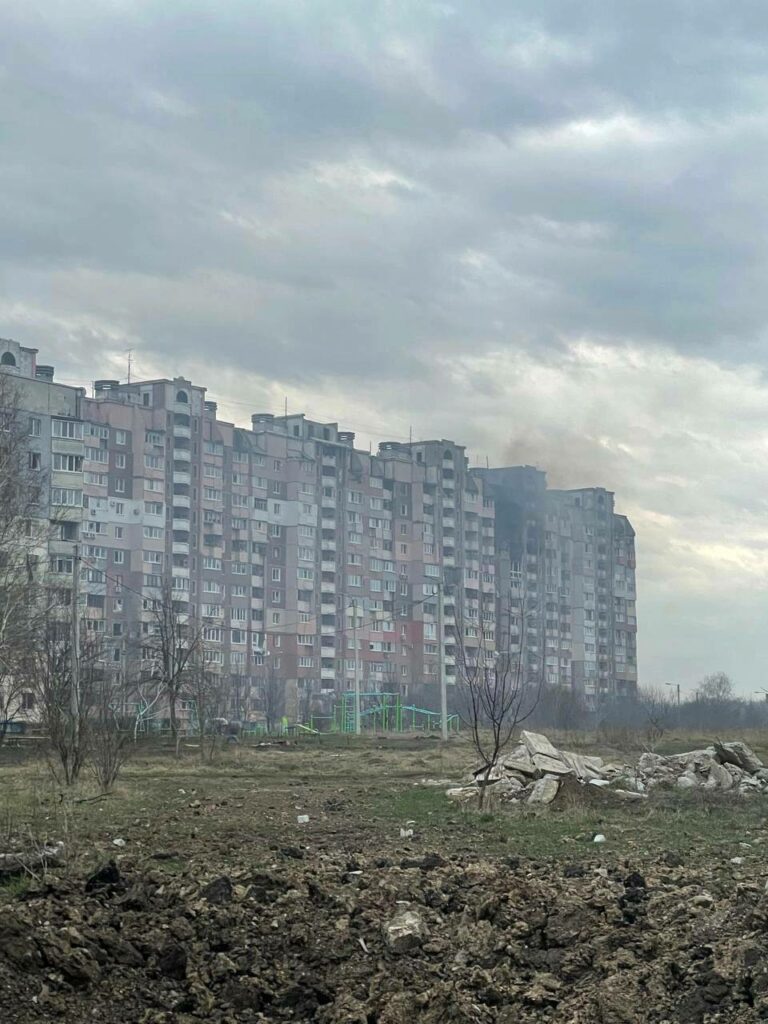
“I and the other 37 youth delegates from all over Europe participated in the thematic committees of the Congress of Local and Regional Authorities of Europe, spoke on the agenda and addressed our questions to the high-ranking officials. Of course, Ukraine was on the agenda; this discussion lasted for three hours. Over 50 congress participants had interventions. The meeting began with the Ukrainian anthem and all the Ukrainian delegates (not the young people but the very delegates to the Congress) were present with Ukrainian flags. I made my own statement to make sure that they are ready to oppose the war, if Putin doesn’t stop,” the young woman recalled.
Sasha’s parents urged her not to return to Ukraine because of the continued insecurity in the country. And so she planned to stay in France after the Congress, hoping to take part in the European Solidarity Corps volunteer programme. However, Sasha received no positive response to her application for any of the projects. However, a colleague, a youth delegate from France, encouraged her to stay at her home.
“I’m still here in France, although I didn’t plan to stay more than a week. At the same time, I was extremely lucky because a professor at my university suggested that I take part in an internship at the European Parliament. I will be going to Strasbourg again next week to take part in a youth forum for the former and current youth delegates to the Congress. I have also agreed on a meeting with the permanent representative of Ukraine to the Council of Europe when I am there. And after that, I expect, I will go to Brussels for the first internship and will continue to defend the Ukrainian position at the international level,” Sasha says.
The young woman stresses that, despite the fact that the world is already beginning to get used to the war, it continues and causes daily deaths of innocent Ukrainian citizens.
MOST READ
SEE ALSO

‘The Kremlin has entered the chat’: how to protect your personal data on Telegram and avoid the bait of propaganda

No, time is not on Russia‘s side
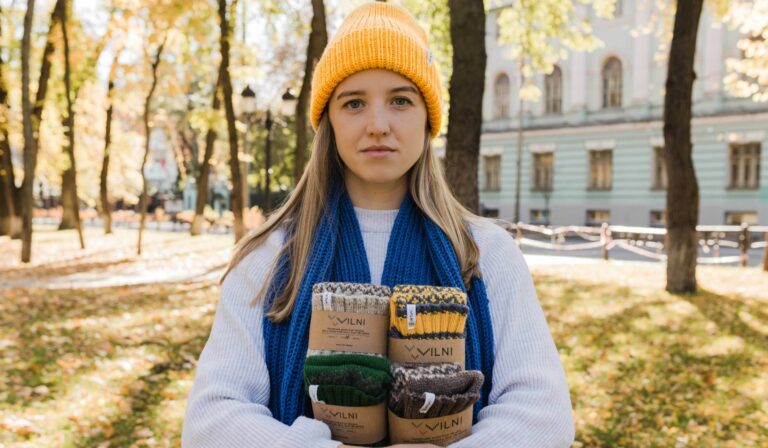
Socks for Peace: how the Vilni project is supporting internally displaced women in Ukraine
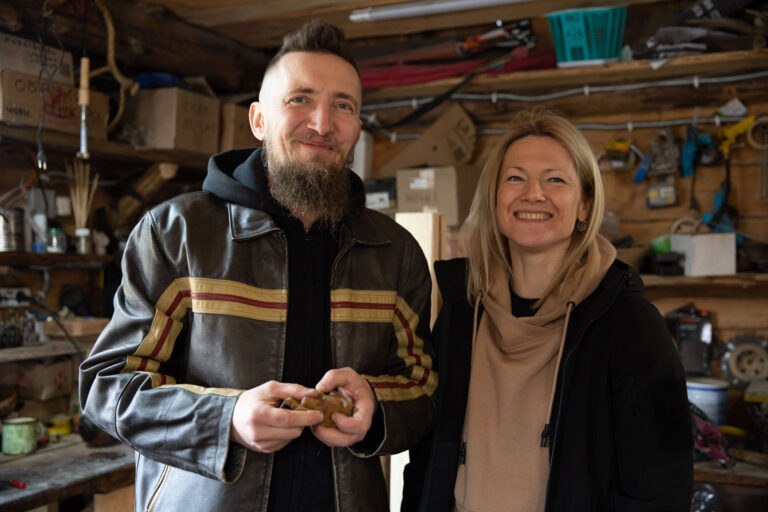
Celebrating traditional Ukrainian cultural identity in Rivne

Natalia wanted her child to escape the war: how a single mother set up a successful business in Lithuania
More campaign pages:
Interested in the latest news and opportunities?
This website is managed by the EU-funded Regional Communication Programme for the Eastern Neighbourhood ('EU NEIGHBOURS east’), which complements and supports the communication of the Delegations of the European Union in the Eastern partner countries, and works under the guidance of the European Commission’s Directorate-General for Neighbourhood Policy and Enlargement Negotiations, and the European External Action Service. EU NEIGHBOURS east is implemented by a GOPA PACE-led consortium. It is part of the larger Neighbourhood Communication Programme (2020-2024) for the EU's Eastern and Southern Neighbourhood, which also includes 'EU NEIGHBOURS south’ project that runs the EU Neighbours portal.

The information on this site is subject to a Disclaimer and Protection of personal data. © European Union,







